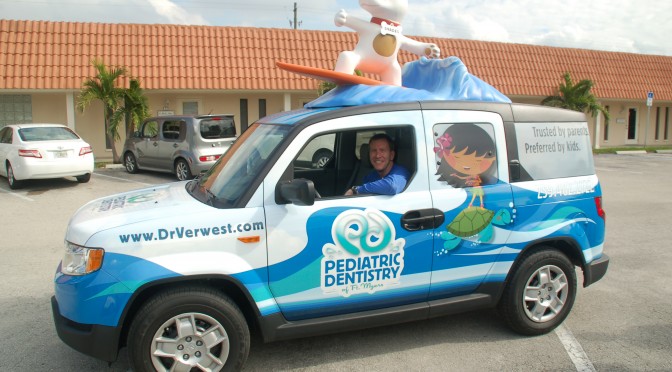
Pediatric Dentistry of Ft. Myers voted “Best of Southwest Florida” 2016
For the second consecutive year Pediatric Dentistry of Ft. Myers, Dr. Tim M. Verwest, DMD & Associates has been voted best pediatric dentist of Southwest[…]
What Makes Me Smile Art Exhibit
– Pediatric Dentistry of Ft. Myers, Dr. Tim Verwest, DMD is offering children 18 years or under a chance to create works of art centered[…]

Local Dentist Recognized as America’s Best Dentist for 2016
The National Consumer Advisory Board has named Pediatric Dentistry of Ft. Myers, Dr. Tim M. Verwest, DMD one of America’s Best Dentist for 2016. Selections[…]
Caring for teeth with braces
Braces are often placed in patients between 10 and 14 years of age to correct crooked or overcrowded teeth. “The benefits of braces are many,”[…]
Baby pacifiers: Pros and cons
Should parents let their infant use a pacifier? According to the Academy of General Dentistry (AGD), there are benefits as well as a downside to[…]
An apple a day may keep the dentist away
Dietary habits of schoolchildren encourage an increase in sugar intake leading to a greater risk of cavities, reports the Academy of General Dentistry. Over a[…]
5 tips to keep teeth healthy over the holidays
No matter how much you love your dentist, he or she probably doesn’t top the list of people you want to spend quality time with[…]
Holiday sweets can be tough on teeth
The winter holidays are known for sweet treats and tempting goodies, but that doesn’t mean that you have to end up at the dentist with[…]
Dentists’ candy buyback nets over 400 pounds of sweets
Pediatric Dentistry of Ft. Myers, Dr. Tim Verwest, DMD collected over 400 pounds of candy during their Halloween cash for my candy buyback program. The[…]
